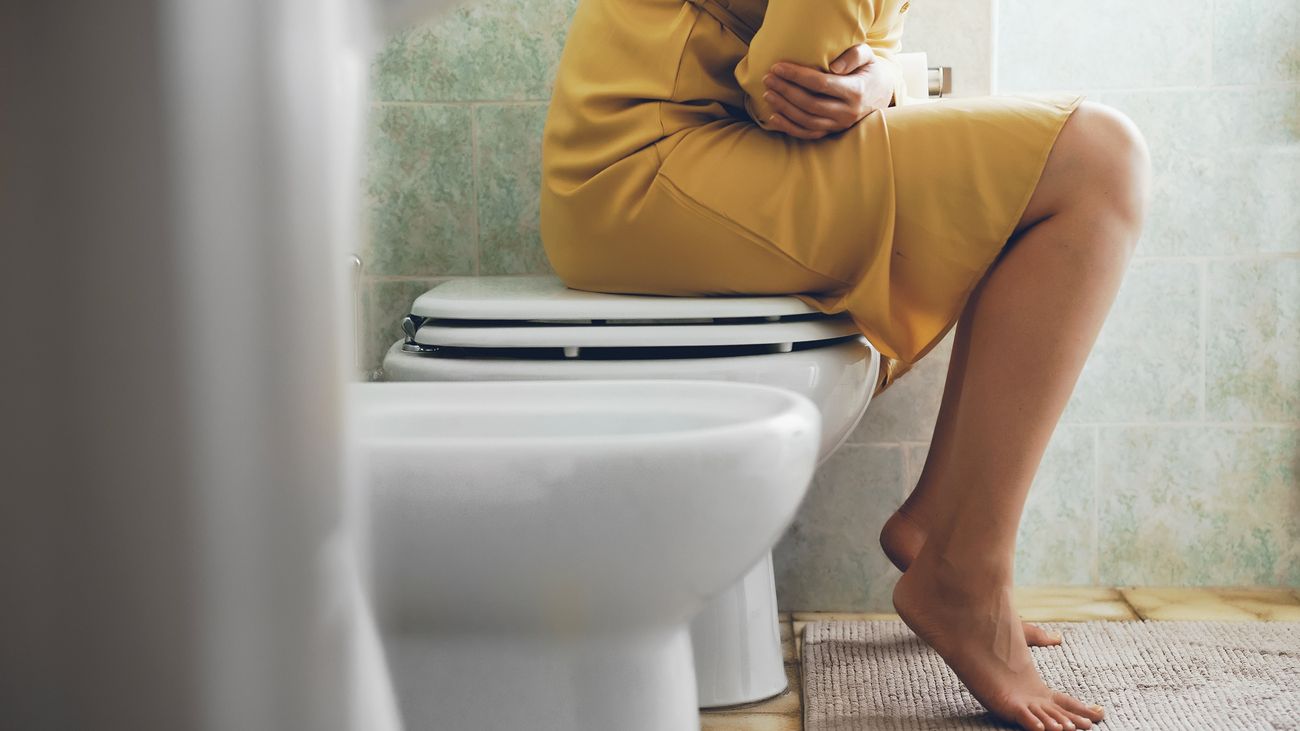Hormones and Constipation: Causes, Symptoms, and Solutions
Jun 02, 2025
Hormonal changes, particularly fluctuations in estrogen and progesterone, can significantly impact bowel movements, often leading to constipation. This article explores the link between hormones and constipation, discussing the causes, symptoms, and effective solutions you can adopt to manage this issue.
Understanding the Link Between Hormones and Constipation
Hormonal fluctuations can significantly alter bowel regularity and function. This is particularly true for women, who are more susceptible to hormone-related constipation due to the natural ebb and flow of female hormones throughout their lives. Estrogen and progesterone, the primary female hormones, play crucial roles in modulating bowel function.
Estrogen is commonly associated with constipation in females, as it can slow down intestinal movement, causing harder stools and irregular bowel habits. Progesterone, on the other hand, influences bowel motility by inhibiting smooth muscle contractions in the gastrointestinal tract, which can also lead to constipation.
Gender differences in hormone concentration contribute to gastrointestinal transit time, meaning men and women experience bowel motility differently. Hormonal imbalances affecting the gastrointestinal system can often present as constipation and might even indicate a more serious underlying issue. Paying attention to these symptoms is important, as they may signal hormonal imbalance or other health concerns.
Recognizing the profound impact of hormonal changes on bowel function is crucial for effectively addressing and managing constipation.
How Estrogen Affects Bowel Function
Estrogen plays a key role in gastrointestinal function, influencing everything from gut motility to fluid balance in the colon. Elevated estrogen levels—particularly during phases of estrogen dominance—can slow intestinal transit time, increasing water reabsorption in the colon and contributing to bloating, constipation, and harder stools.
Fluctuations in both estrogen and progesterone can affect gut rhythm and coordination, which is why many women notice changes in bowel habits across their cycle. These hormonal shifts have also been linked to increased sensitivity and altered gut-brain signaling, contributing to symptoms seen in conditions like irritable bowel syndrome (IBS).
When estrogen levels decline, as they do during menopause, reduced gut motility can also lead to slower digestion and more frequent constipation—highlighting estrogen’s importance in maintaining healthy and regular bowel function throughout a woman’s life.
The Role of Progesterone in Constipation
Progesterone has a significant impact on gastrointestinal motility, particularly by relaxing smooth muscle in the digestive tract. This hormone slows down intestinal contractions, which can lead to sluggish bowel movements and constipation—especially during the luteal phase of the menstrual cycle, when progesterone levels are at their peak.
This natural slowdown helps prepare the uterus for potential implantation, but it also affects other smooth muscle tissues, including those lining the intestines. As progesterone levels drop before menstruation, some women may experience bloating or worsened constipation due to continued motility disruption combined with rising prostaglandins, which can irritate the gut.
Understanding how progesterone reduces contractile activity in the gut can help guide targeted strategies for managing hormone-related digestive changes, such as supporting hydration, fiber intake, and stress reduction.
Menopause and Digestive Health

As women transition into menopause, they may experience a range of menopausal symptoms, including changes in the digestive system. Decreased estrogen levels during menopause can also lead to slower digestion and increased constipation. Estrogen is crucial for maintaining gut health, and its disruption can lead to various gastrointestinal symptoms. High and low levels can both contribute to constipation.
Hormonal changes can greatly affect bowel movements, causing discomfort and reducing quality of life. If you have fewer than three bowel movements in a week, it is considered constipation. This is especially relevant during menopause.
Hormone replacement therapy (HRT) can alleviate menopausal constipation by addressing some hormonal imbalances. Additionally, lifestyle changes, including dietary adjustments, staying hydrated, and regular exercise, are key approaches in treating menopausal constipation.
Constipation During Menstrual Cycle
The menstrual cycle induces significant hormonal fluctuations, particularly in estrogen and progesterone levels. These changes can lead to alternating periods of constipation and diarrhea, making it challenging for many women to maintain regular bowel movements.
Women often experience constipation during certain life stages, particularly pregnancy and premenstrual days. This cyclical nature of constipation can be frustrating, but understanding the hormonal triggers can help in managing the symptoms.
Understanding the link between the menstrual cycle and bowel habits can empower women to take proactive steps to prevent and relieve constipation during these periods.
Solutions for Hormonal Constipation

Addressing hormonal constipation requires a multifaceted approach that supports both gut motility and microbiome health. Hormonal fluctuations can alter how your digestive system functions—so optimizing your diet, movement, hydration, and stress levels can make a big difference.
In addition to balancing estrogen and progesterone, restoring a healthy gut microbiome is key to improving long-term digestive function. A diverse and balanced gut microbiome supports regular bowel movements, reduces inflammation, and improves overall hormone metabolism.
Dietary Support for Gut and Hormone Health
A well-rounded diet that includes fiber, prebiotics, and probiotics not only supports regularity but also helps nourish your beneficial gut bacteria.
Fiber-Rich Foods:
Fiber adds bulk to the stool and helps regulate bowel movements. Aim to include plenty of fruits, vegetables, legumes, and whole grains in your meals. Resistant starches are especially beneficial for gut health. Great options include:
- Cooked and cooled beans, lentils, or chickpeas
- Oats (like steel-cut oats or overnight oats)
- Potato salad (cooked and cooled potatoes with a fat and vinegar source)
- Plantains
- Slightly green bananas
- Rice cooked with olive oil or butter and then cooled
These fibers and resistant starches act as fuel for beneficial bacteria and promote smoother digestion.
Prebiotic Foods:
Prebiotics serve as nourishment for healthy gut bacteria. Incorporating foods like garlic, onions, leeks, ground flaxseeds, and chia seeds into your routine helps encourage microbial diversity and ease constipation over time.
Probiotic-Rich Foods:
Probiotics help introduce and maintain beneficial bacteria in your gut. Fermented foods are a natural source of these helpful microbes. Try including:
- Yogurt with live cultures
- Kefir
- Sauerkraut and sauerkraut juice (gut shots)
- Kimchi
- Kvass
- Pickles (naturally fermented)
- Natto
- Raw apple cider vinegar
- Fermented vegetables like firefly carrots or beets
- Miso (preferably unpasteurized)
Adding a variety of these foods consistently supports both digestive health and hormone metabolism.
Hydration:
Water helps fiber do its job and keeps stool soft and easier to pass. Aim for 8–10 glasses of filtered water per day. Clear broths, herbal teas, and diluted juices can also support hydration.
Herbal Remedies for Constipation Relief
Herbs can offer gentle, natural support for the digestive system, especially when constipation is related to hormone fluctuations.
- Ginger has natural anti-inflammatory properties and can stimulate digestion.
- Turmeric, rich in curcumin, helps calm inflammation and may ease discomfort.
- Peppermint relaxes intestinal muscles and may reduce bloating and gas.
- Fennel helps relieve gas and support smoother digestion.
- Chamomile has calming, anti-inflammatory effects that can ease digestive tension.
- Marshmallow Root is high in mucilage, which can soothe and protect the gut lining.
These herbs can be used as teas, tinctures, or supplements, depending on your preference and the guidance of your healthcare provider.
Exercise and Movement
Physical activity stimulates the muscles in your digestive tract and promotes regular bowel movements. Walking, swimming, gentle yoga, or stretching can all support healthy gut motility. Even short daily movement sessions can make a difference.
When to Seek Medical Attention
If constipation persists despite lifestyle modifications and over-the-counter treatments, or if severe symptoms arise, it’s crucial to consult a healthcare provider. Severe symptoms that require immediate medical attention include abdominal pain and rectal bleeding. Unexpected weight loss is also a concerning sign.
Persistent constipation during menopause might indicate serious health conditions like neurological disorders, colon cancer, or bowel obstructions. Symptoms such as infrequent bowel movements, difficulty in stool passage, abdominal discomfort, bloating, or rectal bleeding may indicate severe constipation and menopause symptoms.
Persistent changes in bowel habits lasting several days warrant a doctor’s visit to rule out severe health issues.
Long-Term Health Risks of Chronic Constipation
Chronic constipation is more than a discomfort—it can carry long-term health risks. Research has shown that individuals with persistent constipation may have a slightly increased risk of gastrointestinal cancers over time, with one study estimating a 2.5% cumulative incidence after 15 years. Notably, there is also evidence suggesting a significantly elevated short-term risk for ovarian cancer, particularly within the first year of diagnosis, with a standardized incidence ratio (SIR) of 7.3—possibly reflecting delayed diagnosis or overlapping symptoms.
These findings highlight the importance of proactively addressing chronic constipation—not just to improve daily comfort, but to support long-term health and detect any underlying conditions early.
Summary
Hormonal changes can significantly impact bowel function, leading to constipation. Estrogen and progesterone play pivotal roles in gut motility, and their fluctuations can cause constipation during various life stages such as the menstrual cycle and menopause. Understanding these connections helps in identifying effective solutions, ranging from dietary changes and regular exercise to over-the-counter medications.
Addressing hormonal constipation not only improves digestive health but also enhances overall well-being. By staying proactive and making necessary lifestyle adjustments, women can manage their bowel habits better and prevent the long-term health risks associated with chronic constipation. Remember, maintaining regular bowel movements is crucial for balanced hormones and a healthier life.
Sources:
https://pmc.ncbi.nlm.nih.gov/articles/PMC3823955/
https://pmc.ncbi.nlm.nih.gov/articles/PMC8080720/
https://bmcwomenshealth.biomedcentral.com/articles/10.1186/1472-6874-14-14
https://www.health.harvard.edu/newsletter_article/stress-and-the-sensitive-gut
https://journals.physiology.org/doi/full/10.1152/ajpgi.00144.2019
https://www.sciencedirect.com/science/article/abs/pii/S0024320520313023
https://pmc.ncbi.nlm.nih.gov/articles/PMC1378226/
https://pubmed.ncbi.nlm.nih.gov/2920923/
https://pmc.ncbi.nlm.nih.gov/articles/PMC10778582/
https://pubmed.ncbi.nlm.nih.gov/29381667/
Unlock Your Hormone Health With Our Free Checklist
You deserve to know what is going on with your body and to understand why (or even IF) you have hormonal imbalances.
So we created this FREE resource to help guide you with some of the top labs and tests to consider.







